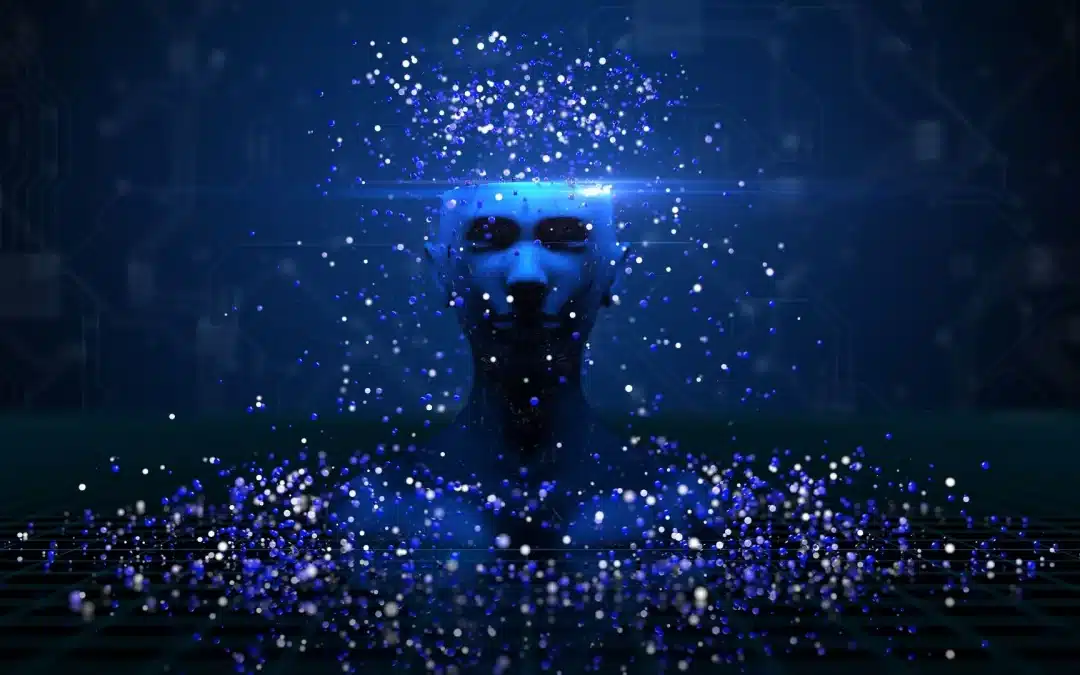In this guide to AI agents, you’ll discover how these autonomous applications go beyond the traditional capabilities of generative AI models, combining logic, reasoning, and access to external information to achieve specific goals.
In simple terms, an AI agent is an application designed to achieve a goal by observing the world and acting on it through tools at its disposal. AI agents are autonomous and can act independently of human intervention, especially when they have clear objectives to pursue. Furthermore, they can be proactive: even without explicit instructions, they can reason about what the next step is to take to achieve their final goal.
At the basis of the behavior and actions of AI agents is a cognitive architecture, composed of various components that can be combined to create highly specialized systems. These agents represent a major step forward compared to traditional chatbots, allowing the execution of complex tasks without human intervention.
How to create ai agents
Anyone can access the OpenAI playground to create their own AI Agent. However, the process is not very simple. This is why there are platforms like Crafter.ai that simplify the development process and management of AI agents, combining tools and features within a hybrid platform, which allows you to benefit from the latest innovations made available by the Big Players (Chatgpt, Gemini , Claude, Mistral, Llama), without the complexity of having to know each of these models.
To start creating your own agent you need to clarify its task: what will it need to be able to do?
For example, to create an AI agent tasked with answering a large number of questions, drawing on a set of documents, it is advisable to use supervised LLMs with RAG technology.
On the other hand, when it is crucial to ensure precise and predictable behavior of the AI agent, such as for the management of prices, discounts, reservations or device tasks, it will be preferable to use a tool such as the Conversation designer which allows you to design bots that perform tasks specific with absolute certainty.
The guided creation process within the platform further simplifies the process.
AI AGENTS Practical applications
AI agents are revolutionizing numerous industries, from pharmaceutical research to customer service, by improving efficiency and reducing costs. Here are some examples:
Chemical synthesis in drug discovery
Pharmaceutical giant Johnson & Johnson uses AI agents to optimize the chemical synthesis process in drug discovery. These agents determine, for example, the best time to perform the “solvent switch”, a critical phase for the crystallization of molecules. Thanks to agents, the process, which previously required many manual iterations, is now faster and more precise.
Financial analysis
Financial analysis firm Moody’s has developed a multi-agent system to carry out tasks such as comparing sectors and analyzing company documents. These agents work synergistically and can arrive at different conclusions on complex topics, offering a more nuanced view of information.
Code and marketing automation
eBay has created an AI agent framework that uses different language models for tasks like translating and writing code. Agents also learn user preferences, becoming increasingly sophisticated and autonomous over time.
HR support
With the “askT” agent, Deutsche Telekom offers its employees a tool to get answers about company policies, benefits and products. This agent is able to perform tasks such as managing vacation requests directly in HR systems.
Customer service
Spanish company Cosentino uses a “digital workforce” of AI agents to fill customer service gaps. These agents replaced the jobs of 3-4 people, allowing human employees to focus on higher value-added tasks.
BENEFITS FOR COMPANIES
AI agents promise a remarkable return on investment, allowing companies to:
- Reduce the number of working hours for repetitive tasks.
- Optimize the use of human resources, moving them towards more strategic activities.
- Automate complex processes, improving operational efficiency.
The challenges to face
Despite the benefits, AI agents present some challenges. For example, there is a risk that they generate biased information or rely on inaccurate data. To mitigate these problems, it is essential to implement adequate human supervision and control systems to ensure the quality of outputs.
The Crafter.ai platform integrates RAG – Retrieval Augmented Generation technology for greater precision and accuracy of responses.
ConclusionS
AI agents represent a turning point in the use of artificial intelligence, allowing companies to go beyond simple automations and tackle complex tasks autonomously. With responsible use and appropriate oversight, these tools can transform the way businesses operate, opening new frontiers of efficiency and innovation.
Source: WSJ

